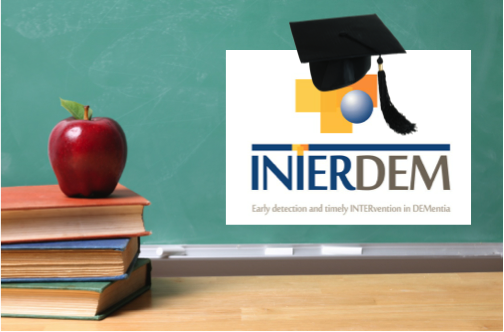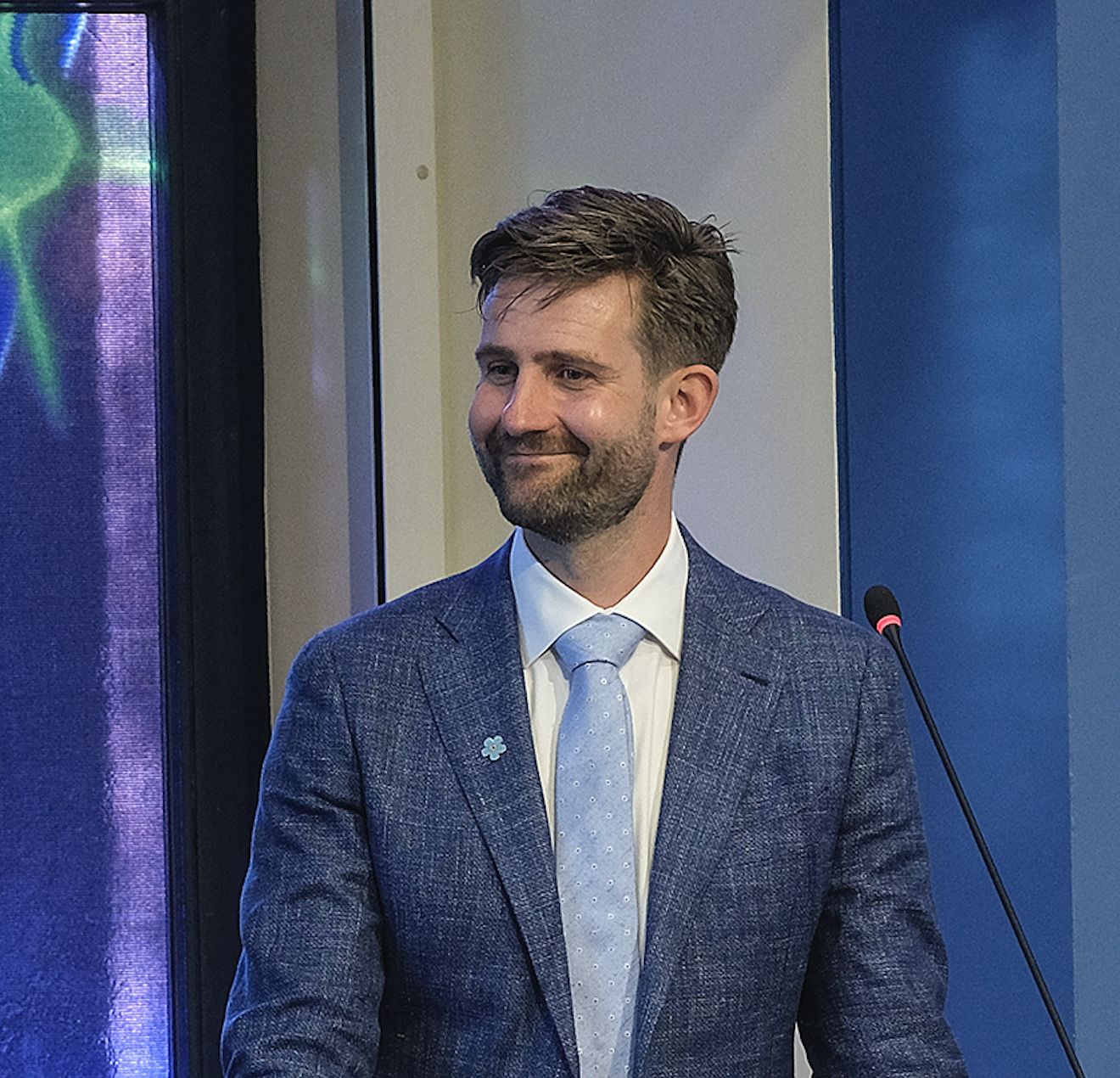Outcome INTERDEM Academy Publication Award 2021-2022

We want to thank all participants for sending in their contributions. We were again highly impressed by the quality of the articles sent in. Each contribution was well written and had a clear link with our INTERDEM mission. Please find below the jury report and this year’s outcome, and blog contributions from our winners and runner-up.
Jury report
By Georgina Charlesworth, PhD
The jury were provided with papers from six entrants to the competition, and read them all with interest. The papers represented dementia from a range of disciplinary perspectives and illustrated some interesting methodological approaches. It is not unusual for jury reports to highlight that there was intense competition, or that the decision making was challenging. In this case, the jury was thoroughly tested. Even though we had all been provided with the same criteria on which to make judgements, we spent a long time in discussion on how to resolve being ‘split down the middle’; of the four jury members, two aligned with each other in showing a preference for 2 papers, and the other two jury members held a preference for a different two papers!
Our deliberations led us to the following conclusion: joint first place to the papers of Bruinsma and Christie, and a special commendation for Sass. We Hope that INTERDEM will join us in celebrating Bruinsma’s evaluation of a support initiative for families of people with fronto-temporal dementia, and Christie’s work on the importance of sustainability in intervention development. However, if there is one paper that you read in full, we encourage you to make it Sass’s creative non-fiction paper on the experience of men with dementia.
Shared 1st place:
- Business Models of eHealth Interventions to Support Informal Caregivers of People With Dementia in the Netherlands: Analysis of Case Studies. First author: Hannah Christie – doi:10.2196/24724
- Tailoring the web-based ‘Partner in Balance’ intervention to support spouses of persons with frontotemporal dementia. First author: Jeroen Bruinsma – https://doi.org/10.1016/j.invent.2021.100442
2nd place:
- Creative non-fiction in dementia: Men’s experiences of sport-focused reminiscence using narrative methods. First author: Cara Sass – https://doi.org/10.1016/j.metip.2021.100061
Winners of this year – blog contributions
By Hannah Christie, PhD
I was delighted to hear I had been selected as a first prize winner of the 2022 INTERDEM publication award! I am very fond of the piece of research in question, as it was quite a methodological challenge that nonetheless ended up producing some of the most interesting findings of my PhD with the Interdisciplinary Network for Dementia Using Current Technology (INDUCT) project. Two years since this research, I am currently a postdoctoral researcher still based at Maastricht University, though I will soon be leaving for a year-long Niels Stensen fellowship at Nottingham Trent University to conduct some very exciting research with dr Penelope Siebert on understanding the eHealth needs of carers of people with dementia from an intersectional lens.

The publication I had submitted is entitled “Business Models of eHealth Interventions to Support Informal Caregivers of People With Dementia in the Netherlands: Analysis of Case Studies” and was published in June 2021 in JMIR Aging. I am very grateful for the input of all co-authors: dr Lizzy Boots, Ivo Hermans, dr Mark Govers, dr Huibert Tange, prof. dr. Frans Verhey, and prof. dr. Marjolein de Vugt.
The research in this publication focused on examining what researchers could learn from eHealth interventions for dementia that are already being used in practice. Nine case studies were recommended by a variety of stakeholders and analysed for their business model characteristics through interviews with the developers. To me, the most interesting findings were that many of the most successfully implemented interventions did not come from an academic research content, and the importance of community building in bringing an evidence-based intervention into practice.
A really nice aspect of this study was how it involved a wide range of contributors, including co-authors from industry and different academic disciplines, but also made use of public and patient involvement networks to gain insight into how evidence-based interventions are (and should be) used in practice. It also shows the strength and interconnectedness of the INTERDEM network, as it involves interviews with several INTERDEM members and analysis of their eHealth projects (e.g. Thinkability, iSupport, Nachtrust bij Dementie, Dementie.nl, Myinlife, Partner in Balance, and STAR).
While this research focuses on the Netherlands, it contains lessons that are applicable for international contexts. It also presents interesting INTERDEM collaboration opportunities for replicating similar dementia eHealth case study analyses in other countries.
Thank you to INTERDEM for this very generous award!
To read the full article:
Christie, H. L., Boots, L. M. M., Hermans, I., Govers, M., Tange, H. J., Verhey, F. R. J., & de Vugt, M. (2021). Business Models of eHealth Interventions to Support Informal Caregivers of People With Dementia in the Netherlands: Analysis of Case Studies. JMIR aging, 4(2), e24724. doi:10.2196/24724
Caregiving and frontotemporal dementia – you can’t stop the waves but you can learn to surf
By Jeroen Bruinsma, PhD
During my PhD, I spoke with hundreds of caregivers. I was particularly touched by the stories of spouses caring for a partner with frontotemporal dementia (FTD). These spouses often felt like an exception because the symptoms of FTD differ substantially from those of other dementias, such as Alzheimer’s dementia. Typically, early symptoms of FTD start at young age and profoundly change personality, behavior and social cognition. For spouses it is extremely challenging to cope with these symptoms. Disturbing is that spouses frequently experience difficulty to relate to available support services, that are mostly designed with older peers and Alzheimer dementia in mind. Therefore, I worked on incorporating tailored materials for spouses caring for a partner with FTD in the web-based Partner in Balance intervention.

In line with the INTERDEM mission, the tailored intervention content was developed together with spouses of persons with FTD. They were involved via focus groups, helped with recording new videos, and provided feedback on the intervention materials. Additionally, we obtained input from healthcare professionals, field experts, and important dementia networks.
A prospective evaluation demonstrated that spouses highly appreciated the tailored intervention materials and they valued the usability of the web-based intervention. One of the participants told me the intervention made her realize she was unable stop the waves (i.e., progression of symptoms), and therefore focused on learning how to surf (i.e., perform caregiving). A crucial skill for both surfing and caregiving is finding a right balance. This is exactly what the intervention demonstrated to do as spouses expressed to feel more confident, more at ease, and strengthened after the intervention. They also improved on levels of self-efficacy, anxiety and depression. You can read more about the research and the findings in our academic research paper.
To read the full article:
Bruinsma, J., Peetoom, K., Boots, L., Daemen, M., Verhey, F., Bakker, C., & de Vugt, M.(2021). Tailoring the web-based ‘Partner in Balance’ intervention to support spouses of persons with frontotemporal dementia. Internet interventions, 26.
https://doi.org/10.1016/j.invent.2021.100442
Runner-up – 2nd place
By Cara Sass, PhD

I chose to base my PhD on sports-based reminiscence on men living with dementia, after taking part in a Sporting Memories session during Dementia Action Week. I was so uplifted by the atmosphere and camaraderie that this felt like an obvious intervention on which to focus my thesis. My study aimed to identify the potential benefits of sports-based, group reminiscence for people living with dementia through observation of these sessions. I published three articles presenting ethnographic data gathered during my study, one of which was featured in a special issue of Methods in Psychology in 2021.
The focus of my featured article aligns with the INTERDEM mission by highlighting a timely and powerful intervention for people living with dementia. Men are more vulnerable than women to experiencing loneliness and social isolation post-diagnosis, while also finding a lack of appropriate activities to meet their interests. The findings I reported in this paper show how Sporting Memories groups can support men to form meaningful relationships with others. Such relationships are instrumental to accessing vital social support, and give purpose and meaning to people’s lives.
I’m interested in creative methods of gathering and presenting research data, and my PhD gave me the freedom to try narrative writing. This article demonstrates how the method of creative non-fiction can bring qualitative data to life in story form, and open more opportunities for people with dementia to make a meaningful contribution to research. Stories place them in the centre of the work as fully-formed characters, instead of representing their views as quotes or figures in a table.
I loved the idea of stepping out of my usual academic style of writing and trying something completely new for this study, and hope that my article will encourage other researchers to consider creative and accessible ways of disseminating their findings in the future.
To read the full article: Sass, C., Surr, C., & Lozano-Sufrategui, L. (2021). Creative non-fiction in dementia: Men’s experiences of sport-focused reminiscence using narrative methods. Methods in Psychology, 5, 100061. https://doi.org/10.1016/j.metip.2021.100061
Congratulations to the winners! We would also like to thank Dr Georgina Charlesworth, Dr René Thyrian, Dr Claudio Di Lorito and Dr Natashe Lemos Dekker for taking place in this year’s jury and providing us with their careful considerations and final ranking.
